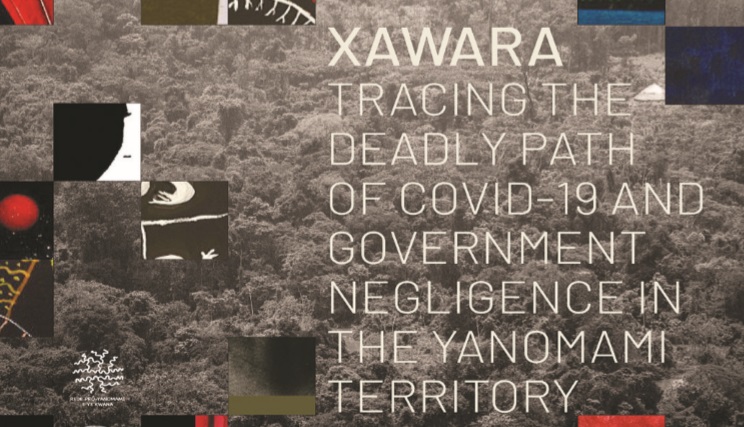Brazil ignored the cry of its people, now COVID-19 is decimating remote communities
With the arrival of the new, highly contagious P1 variant these figures may only be the beginning, health professionals have warned.
Apr 10, 2021

By Elouise Hobbs
Following the news that more than 66,000 deaths were recorded last month, Brazil has now reported over 4,000 Covid-related deaths in 24 hours for the first time. These statistics, although shocking are not surprising, say health experts and charities who have been trying to raise the alarm for months.
It was announced that in March, 66,570 people died of Covid-19 in Brazil. Daily fatalities in the country currently account for about a quarter of the global total.
With the arrival of the new, highly contagious P1 variant these figures may only be the beginning, health professionals have warned.
"For months, experts have been saying that the situation in Brazil is a tragedy in the making," explained Cecilia Iorio, Brazil country representative for the UK aid agency CAFOD.
The impact of the pandemic, currently surging in the south of Brazil, including in the country's capital, Sao Paulo, could have been mitigated, Iorio says:
"Back in January and February, when Manaus was the epicentre of the pandemic, the signs were clear - and they all pointed towards disaster. Yet, still, the federal government ignored these warnings and the cry of their people."
Indigenous and rural communities have been hit exceptionally hard over the last six months.
Covid-19 cases have now been confirmed in 23 of the 37 regions of the Yanomami Territory. Located between the states of Roraima and Amazonas, the area is home to around 26,700 indigenous people, including isolated groups, who are even more vulnerable to disease.
According to a recent report, 'Tracing the deadly path of COVID-19', it is estimated 10,000 people, or more than a third of the total population, may have already been exposed to the virus.
In the Demini region, one of the most tested in the territory, over 90 per cent of the population have been infected with COVID-19, according to tests performed by the Yanomami Health District.
"When it was clear that help was not coming, it fell to charities, church and community leaders to try and respond with limited resources," continued Iorio.
"The latest statistics show how the Federal government failed to prepare for a second COVID-19 wave. There was a lack of strategy, no emergency support for families to stay at home and patchy lockdowns and curfews. Those living in marginalised, remote, and indigenous communities have been side-lined in the battle against this indiscriminate virus."––ICN







Total Comments:0